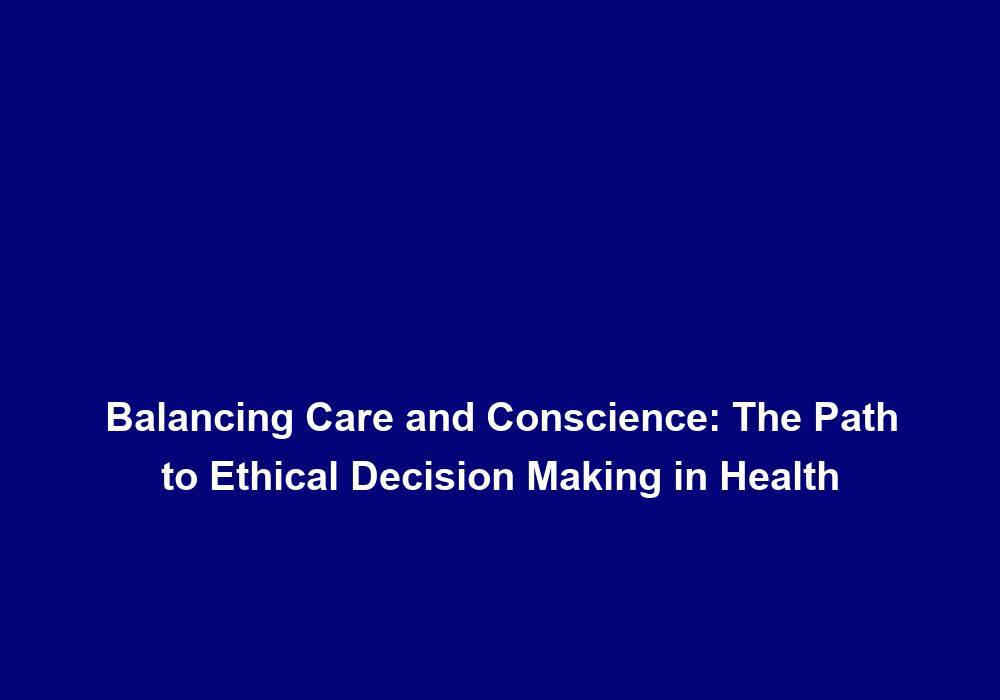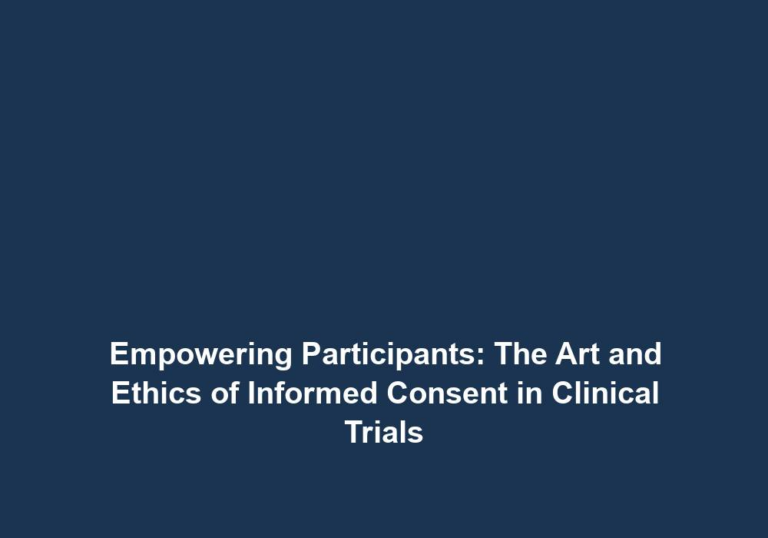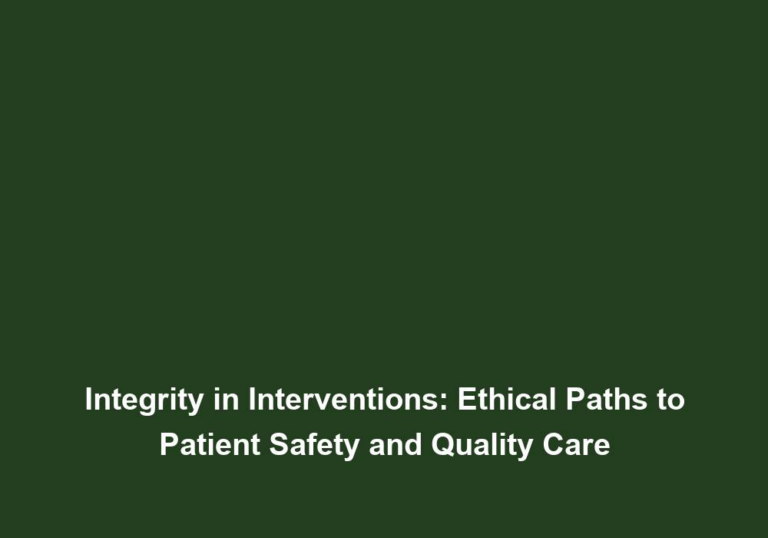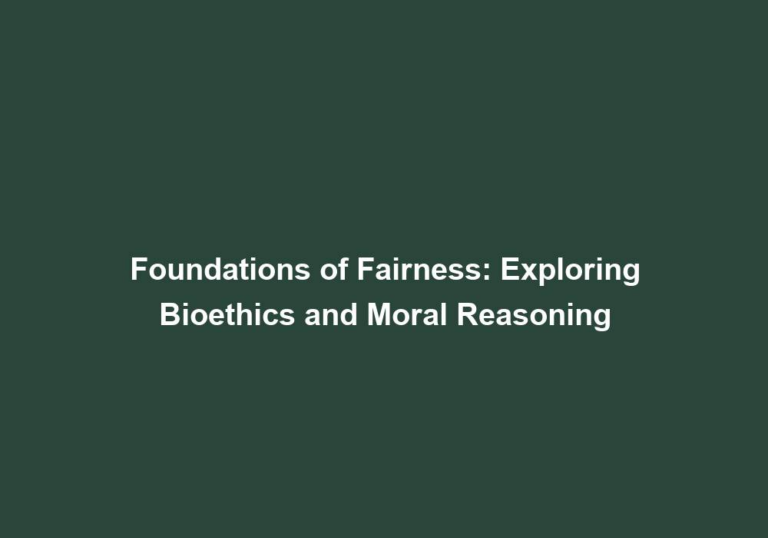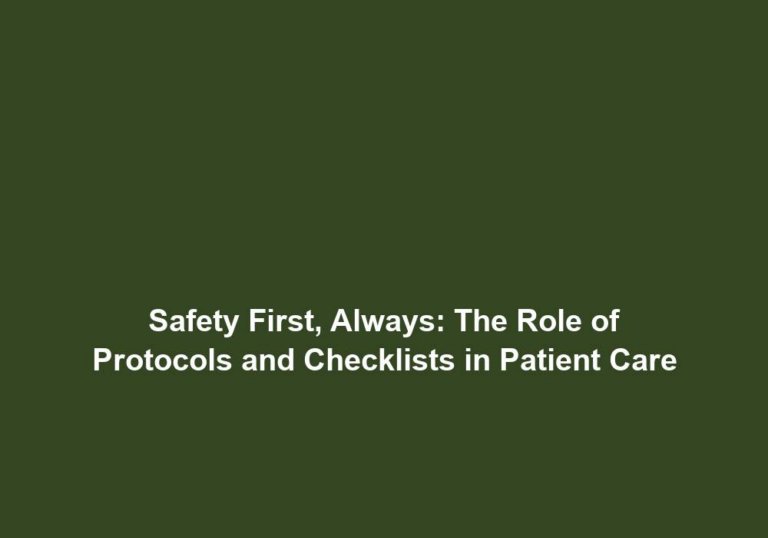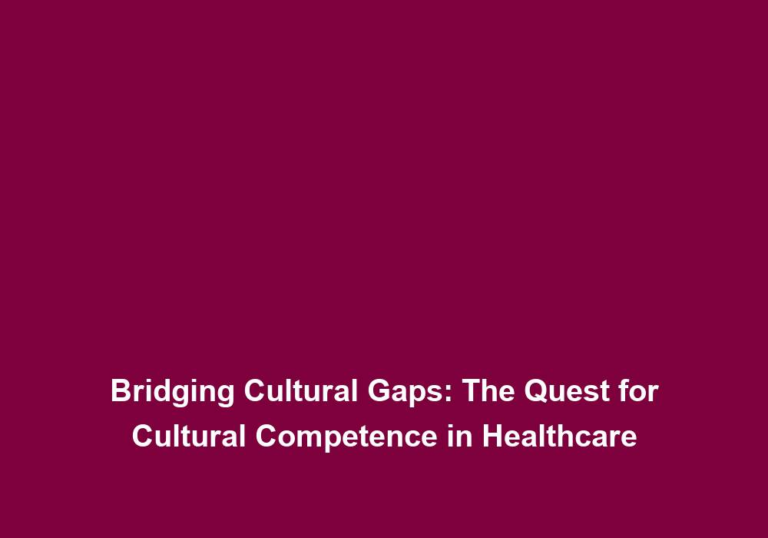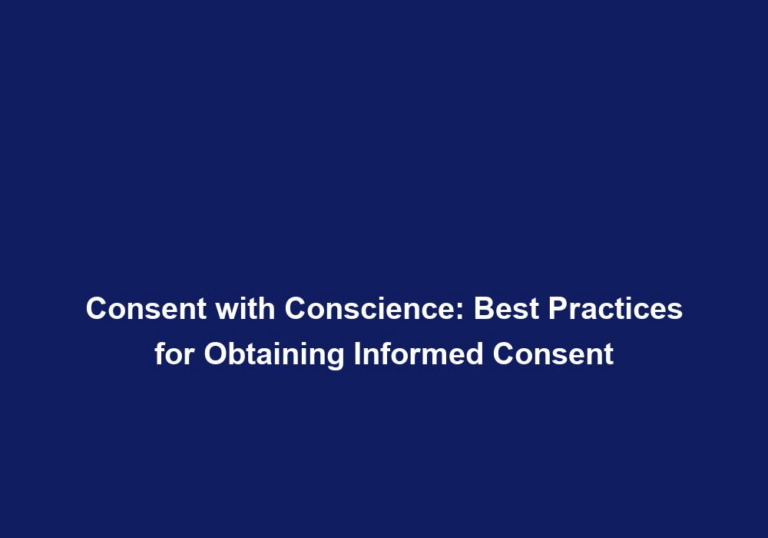Choices in Care: Navigating Ethical Decision Making in Medical Practice
In the field of medicine, healthcare professionals constantly find themselves faced with complex ethical dilemmas that require careful consideration and decision-making. These ethical decisions can have profound impacts on patients, their families, and the overall healthcare system. Navigating through these choices is both challenging and crucial for medical practitioners, as they strive to provide the best possible care while upholding ethical principles and moral values. This article aims to explore the various aspects of ethical decision making in medical practice, offering insights and guidelines for healthcare professionals to make informed choices.
Understanding Ethical Decision Making in Medical Practice
Medical practice is grounded in a set of principles that guide healthcare professionals in their interactions with patients, colleagues, and society as a whole. These principles include beneficence (doing good), non-maleficence (do no harm), autonomy (respect for patient’s rights and choices), and justice (fairness in resource allocation). Ethical decision making requires a systematic approach that takes into account these principles, along with legal obligations and professional codes of conduct.
Factors Influencing Ethical Decision Making
Several factors can influence the ethical decision-making process in medical practice. These factors include:
- Medical Condition and Prognosis: The nature and severity of a patient’s medical condition, as well as their prognosis, can significantly impact ethical decision making. Healthcare professionals must consider the potential benefits and risks of different treatment options, taking into account the patient’s best interests and quality of life.
- The complexity of the medical condition and the prognosis can determine the level of intervention required and the potential outcomes. It is crucial for healthcare professionals to have a comprehensive understanding of the patient’s condition to make informed decisions.
- Different treatment options should be evaluated based on their effectiveness, potential side effects, and impact on the patient’s overall well-being.
- Quality of life considerations should be taken into account, including the patient’s ability to function independently and their emotional well-being.
- Patient Preferences and Values: Respecting patient autonomy is a fundamental aspect of ethical decision making. Healthcare professionals must engage in open and honest communication with patients, ensuring they understand their medical condition, treatment options, and potential outcomes. By considering patients’ preferences and values, healthcare providers can tailor their approach to align with individual needs and beliefs.
- Effective communication is key to understanding the patient’s preferences and values. Healthcare professionals should provide clear and accurate information about the available treatment options, the associated risks and benefits, and any potential alternatives.
- Patient-centered care involves actively involving the patient in the decision-making process and respecting their choices. This may include discussing alternative treatment approaches or considering complementary therapies in line with the patient’s values.
- Cultural and religious beliefs should be respected and taken into consideration when making ethical decisions. Healthcare professionals should be aware of any cultural or religious practices that may impact the patient’s treatment choices.
- Legal and Regulatory Frameworks: Medical practice is bound by various legal and regulatory frameworks that outline the rights and responsibilities of healthcare professionals. These frameworks can influence ethical decision making by providing guidelines on issues such as informed consent, confidentiality, and end-of-life care. Healthcare professionals must ensure their decisions align with these legal requirements.
- Informed consent is a crucial ethical and legal consideration. Healthcare professionals must obtain the patient’s consent before initiating any treatment or procedure, ensuring that the patient is adequately informed about the risks, benefits, and alternatives.
- Confidentiality and privacy laws dictate how patient information should be handled and shared. Healthcare professionals must maintain the privacy and confidentiality of patient records, while also recognizing situations where disclosing patient information is necessary for the well-being of the patient or the public.
- End-of-life care decisions should adhere to legal frameworks surrounding advance directives, living wills, and healthcare proxy designations. Healthcare professionals must understand and respect the patient’s wishes regarding life-sustaining treatments or the withdrawal of such treatments.
- Ethical Guidelines and Codes of Conduct: Professional organizations and medical associations provide ethical guidelines and codes of conduct that help healthcare professionals navigate ethical dilemmas. These guidelines often address topics such as confidentiality, conflicts of interest, and resource allocation. Adhering to these guidelines can aid in making ethically sound decisions.
- Ethical guidelines serve as a framework for ethical decision making and provide a common understanding of professional responsibilities and obligations.
- Healthcare professionals should familiarize themselves with the ethical guidelines specific to their area of practice and ensure their decisions align with these guidelines.
- Ethical decision making should involve consulting with colleagues and seeking guidance from ethics committees or professional bodies when faced with complex dilemmas.
- Availability of Resources: Limited resources, such as healthcare facilities, equipment, and medications, can pose ethical challenges in medical practice. Healthcare professionals must consider the equitable distribution of resources, ensuring fair allocation and optimal utilization. Balancing the needs of individual patients with the needs of the wider population is a key aspect of ethical decision making.
- Resource allocation decisions should be guided by principles of fairness and justice. Factors such as medical urgency, potential for success, and the impact on the overall population should be considered when determining the allocation of limited resources.
- Healthcare professionals should be aware of the availability of resources and consider alternative approaches or treatments when faced with resource constraints.
- The ethical implications of resource allocation decisions should be openly discussed and transparent to maintain trust and fairness within the healthcare system.
Approaches to Ethical Decision Making
Several approaches can be employed when faced with ethical dilemmas in medical practice. These approaches include:
- Principlism: Principlism involves applying ethical principles, such as beneficence, non-maleficence, autonomy, and justice, to guide decision making. This approach helps healthcare professionals consider the moral implications of their choices and weigh the potential benefits and harms.
- Applying the principle of beneficence involves considering the potential benefits of a treatment or intervention for the patient.
- Non-maleficence requires healthcare professionals to assess and minimize the potential harms or risks associated with a particular course of action.
- Respecting patient autonomy involves involving the patient in the decision-making process and considering their rights and choices.
- Justice requires fair and equitable distribution of resources and consideration of the wider societal impact of decisions.
- Casuistry: Casuistry involves comparing the current ethical dilemma with similar cases in the past to determine the most appropriate course of action. By analyzing these precedent cases, healthcare professionals can evaluate the outcomes, ethical considerations, and societal norms associated with different choices.
- Casuistry allows healthcare professionals to draw on past experiences and ethical precedents to guide decision making.
- By considering the similarities and differences between cases, healthcare professionals can assess the ethical implications of different choices and make informed decisions.
- Ethical dilemmas may have unique aspects that require careful consideration, but casuistry provides a valuable framework for analyzing and resolving ethical conflicts.
- Utilitarianism: The utilitarian approach focuses on maximizing overall happiness or minimizing overall suffering. Healthcare professionals employing this approach weigh the potential benefits and harms for all stakeholders involved, aiming to achieve the greatest overall good.
- Utilitarianism requires healthcare professionals to consider the potential impact of their decisions on all individuals involved, including the patient, their family, and the wider community.
- The approach involves evaluating the potential benefits and harms of different treatment options and choosing the course of action that maximizes overall well-being.
- Healthcare professionals should consider the long-term consequences and societal implications of their decisions when applying utilitarian principles.
- Rights-based Approach: This approach emphasizes respecting individual rights and autonomy. Healthcare professionals consider the patient’s right to make decisions about their own healthcare, ensuring informed consent and involvement in the decision-making process.
- Respecting patient rights involves providing clear and accurate information about the available options, risks, benefits, and alternatives.
- Healthcare professionals should engage in open and honest communication, allowing patients to make informed decisions about their own care.
- In situations where the patient lacks decision-making capacity, healthcare professionals should involve appropriate surrogate decision-makers or follow legal frameworks for decision making.
Ethical Dilemmas in Medical Practice
Ethical dilemmas can arise in various areas of medical practice. Some common ethical dilemmas include:
- End-of-Life Care: The decision to withdraw or withhold life-sustaining treatments, such as ventilators or feeding tubes, can pose ethical challenges. Healthcare professionals must consider factors such as the patient’s wishes, quality of life, and the potential futility of further treatment.
- End-of-life care decisions should be guided by the patient’s wishes, as expressed in advance directives or through discussions with their healthcare proxy.
- The healthcare team should engage in open and compassionate communication with the patient and their family, discussing the potential benefits and burdens of different treatment options.
- Ethical considerations may involve balancing the patient’s autonomy and respecting their wishes while considering the medical appropriateness and potential impact on the patient’s quality of life.
- Confidentiality and Privacy: Protecting patient confidentiality while ensuring the appropriate sharing of information with other healthcare providers can be a delicate balance. Healthcare professionals must navigate situations where disclosing patient information may be necessary for the well-being of the patient or the public.
- Healthcare professionals should adhere to legal and ethical guidelines regarding patient confidentiality and privacy.
- In situations where disclosing patient information is necessary, healthcare professionals should obtain appropriate consent or follow legal frameworks for disclosure.
- The healthcare team should prioritize the patient’s well-being and consider the potential harm or benefit of sharing patient information in each specific case.
- Resource Allocation: Limited resources, such as organ transplants or critical care beds, require fair allocation. Healthcare professionals must consider various factors, including medical urgency, potential for success, and the wider societal impact of allocating resources to specific individuals.
- Resource allocation decisions should be guided by principles of fairness, justice, and transparency.
- Healthcare professionals should follow established protocols and guidelines for resource allocation, ensuring that decisions are based on objective criteria and not influenced by personal biases.
- Open and transparent communication with patients and their families is essential to explain the reasons behind resource allocation decisions and address any concerns or questions.
- Conflict of Interest: Healthcare professionals may encounter situations where personal or financial interests conflict with patient care. Ethical decision making requires prioritizing patient well-being and avoiding actions that compromise the integrity of the healthcare profession.
- Healthcare professionals should be aware of potential conflicts of interest and take steps to mitigate them.
- Transparency and disclosure of potential conflicts of interest are essential to maintain trust and integrity in the medical profession.
- In situations where conflicts of interest arise, healthcare professionals should prioritize patient well-being and make decisions based on the best available evidence and ethical guidelines.
Conclusion
Ethical decision making is an integral part of medical practice, requiring healthcare professionals to consider a multitude of factors and perspectives. By understanding the principles, approaches, and ethical guidelines that shape decision making, healthcare professionals can navigate through challenging dilemmas while upholding the highest standards of care. Making informed choices based on sound ethical reasoning ensures that patients receive the best possible care, while maintaining trust, integrity, and respect within the medical community.

